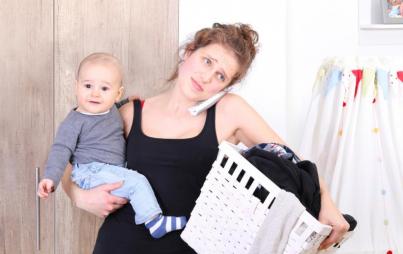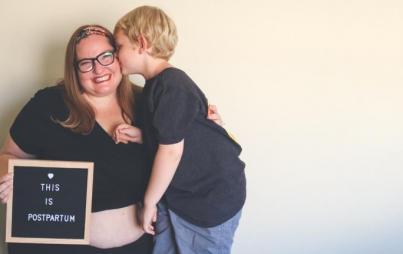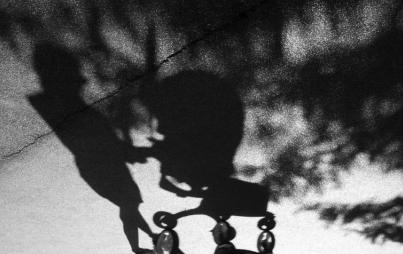
new life, old traditions.
The Red Tent was the place Old Testament women went for menses, birthing, even to convalesce during an illness.
Women have helped each other have babies — and recover from having babies — since ancient times.
Flashback to Leviticus, the rule-making book of the Bible, which details a 33-day “purification period” following the birth of a son, and a 66-day period that comes after having a daughter. Novelist Anita Diamant chronicled the notion of “The Red Tent” in her 1997 novel of the same name. The Red Tent was the place Old Testament women went for menses, birthing, and even to convalesce during an illness.
In colonial America, it was common for women to have a “lying in period” of three to four weeks following a birth. The new mom would regain her strength and connect with her child while female attendants ran her house. Often, these women were relatives, but not always, and none were paid. The understanding was that females would “pay it forward” and lend a hand when others were recuperating from childbirth. Can anyone say sister wife?
Although America’s “lying in period” fell by the wayside in the 19th century with the disappearance of the frontier, it’s alive and well today in many cultures globally. Seclusion traditions where both mother and child recover and bond are still the norm in many cultures worldwide. Hey America, what's up?
In China, birth can mean 30 days in your PJs. Literally called “sitting the month” or zuo yuezi, there are tons of rules — including not being able to eat raw fruits and veggies . . . or bathe. The main objective? To restore the mother’s yin and yang after childbirth, and to strengthen the baby. Moms are served lactation-inducing soups and broths, and aren’t permitted to eat or drink anything cold. Hang on a minute now. Does that mean no ice cream? That sounds drastic.
While most do zuo yuezi with family, it’s now vogue to check into luxury postpartum centers in cities like Taipei and Beijing, which can cost a whopping $500 a day. A bargain . . . For Beyonce.
The “100 Days of Birth” is taken super-seriously in Korea. Old ajummas have been known to chase down modern moms who take their newbies out for fresh air. Force-feeding of nourishing seaweed soups, et al, also takes place. Seaweed soup. I'll pass. I do know Korean food is good in general though. That's a selling point.
In Japan, the magic number is three, as in weeks. Loosely translated, ansei means “peace and quiet with pampering.” The new mom generally kicks back at her folks’ place, mostly staying in bed while she bonds with her baby.
Japanese women have less uterine disease and need fewer hysterectomies in middle age than American women, and many in the medical community believe this is linked to ansei, since it gives the uterus sufficient time to recover after the trauma of childbirth. That's right, trauma.
In Malaysia, woman observe a pantang period of 30 to 44 days, depending on whether her heritage is Chinese or Indian. Some practices include hiring a traditional masseuse (bidan) to massage and bind the belly with a special postnatal corset (bengkung) — this sounds a little like Spanx and I'm not sure about that — and using hot stones on the abdomen to “cleanse” the womb (menaikkan rahim).
India also has a vibrant tradition of post-delivery confinement, anywhere from 40 to 60 days, depending on the region. It’s believed to protect both mother and baby from infection and to help mom bounce back from the physical demands of childbirth. Customs include bathing only with an herbal infusion and having a daily massage with special oil blends, such as mustard seed oil. All I heard was massage.
Several African nations also have confinement traditions, which vary from country to country. Mother and child are quarantined for anywhere from 10 to 40 days while friends and relatives provide the family with meals and care for other children. In the Congo, for example, mothers are given family support for up to three months following a birth. And yet my mom can't even bring soup.
Down in the Atlantic in the Caribbean, Jamaican tradition calls for both mom and baby to be isolated for eight days. Many women in Latin American countries like the Dominican Republic and Mexico observe “la cuarentena,” which literally translates to “quarantine.” I see no mention of food.
La cuarentena, it is believed, is the 40 days it takes for the uterus to return to normal. Relatives pitch in to cook, clean and take care of the kids. Sex and spicy foods, as well as hair-washing, are verboten. Many Latinas believe that strictly following cuarentena guarantees good health in old age and guards against maladies like headaches.
A 1998 cuarentena study of first-time Mexican-American mothers in Texas found that the tradition instills parental responsibility and incorporates individuals into the family plus bonds mother and child during this crucial period.
To many U.S. mothers, the notion of quarantine might seem barbaric, but new moms like Kim think it sounds kind of cool: “I wish we had something like it when I was recovering from my C-section. Not only was I expected to take care of a colicky newborn after having major surgery but I was also expected to entertain guests who came to visit. I was so exhausted I could barely put two sentences together. Where’s my Red Tent?” Sign me up.








